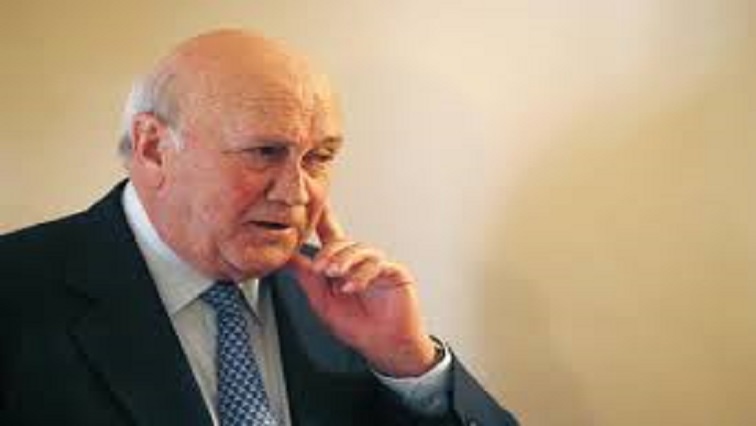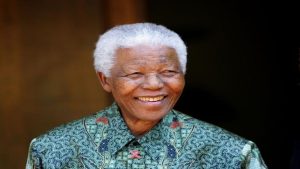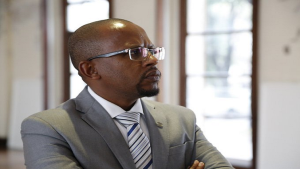The Nelson Mandela Foundation says it’s time Parliament looked at ways to enact what it calls a ‘Hate Law’. The Foundation’s CEO Sello Hatang was reacting to utterances by former Deputy President and the last apartheid-era President, FW De Klerk.
During an interview with the SABC News last week, marking 30 years after Mandela’s release and the unbanning of political parties, De Klerk said that he did not “fully” agree with the UN’s ruling that apartheid was a crime against humanity.
Watch the interview with De Klerk as he controversially denies apartheid was a crime against humanity:
Hatang says it should not be left only to institutions such as theirs to address such issues.
“Maybe it’s time that Parliament says let’s look at hate law. Let’s look at what happens when you have a nation that’s trying to re-image itself; rebuild itself, and you have elements who still believe that they have every right to cause insult, to cause further pain, in fact, to just disregard the pain of others. So, I live in hope that Parliament, maybe, will look at these things and say enough is enough.”
On Thursday, the Economic Freedom Fighters (EFF) used De Klerk’s presence at the State of the Nation Address (SONA) as one of the reasons to disrupt the proceedings.
In an unexpected turn of events, the EFF moved from raising issues about Public Enterprises Minister Pravin Gordhan to requesting Parliament to remove former President FW de Klerk from the house.
Watch the video below as the EFF asks for De Klerk to leave the house:
EFF leader Julius Malema says the former President has proven not to have remorse over Apartheid atrocities and therefore does not deserve to be a guest in the democratic Parliament.
Malema referred to De Klerk as a murderer. “We have a murderer in the house. We have a man who’s got blood of innocent people in this house.”
‘Apartheid was a crime against humanity’
Meanwhile, the United Nations has unequivocally confirmed that Apartheid was a crime against humanity, rubbishing claims by De Klerk to the contrary.
The Office of the High Commissioner for Human Rights has confirmed to SABC News that Apartheid was a well-established crime against humanity because it meets two key elements of being both widespread and systematic.
As our Correspondent at the UN, Sherwin Bryce-Pease reports the General Assembly adopted a resolution as far back at 1966 when it labeled Apartheid a crime against humanity – a determination that was endorsed in a Security Council resolution in 1984.
“The Office of the High Commissioner for Human Rights pointed to the 1973 International Convention on the Suppression and Punishment of the Crime of Apartheid. Article 1 of that Convention declares Apartheid a crime against humanity and that inhuman acts resulting from the policies and practices of Apartheid are crimes violating the principles of international law.
“In addition, the Rome Statute specifically lists the Crime of Apartheid in its list of Crimes Against Humanity, while Human Rights Watch confirmed it as a distinct crime against humanity and a crime also under customary international law,” Bryce-Pease explained.
‘Difficult to charge De Klerk’
The Human Rights Commission says it would be difficult to charge FW De Klerk for his apartheid remarks.
The commission’s CEO Tseliso Thipanyane explains, “Since 1994 we’ve said let’s us move from the past to the future and also remember the ANC itself took a number of National Party members Mr Marthinus Van Schalkwyk became ministers in the new South Africa. So we can’t focus on one person and not focus on others. There are a number of people who were in the previous apartheid government and became officials in the new South Africa.”
In the video below SAHRC CEO Tseliso Thipanyane explains why it would be difficult to charge De Klerk:





